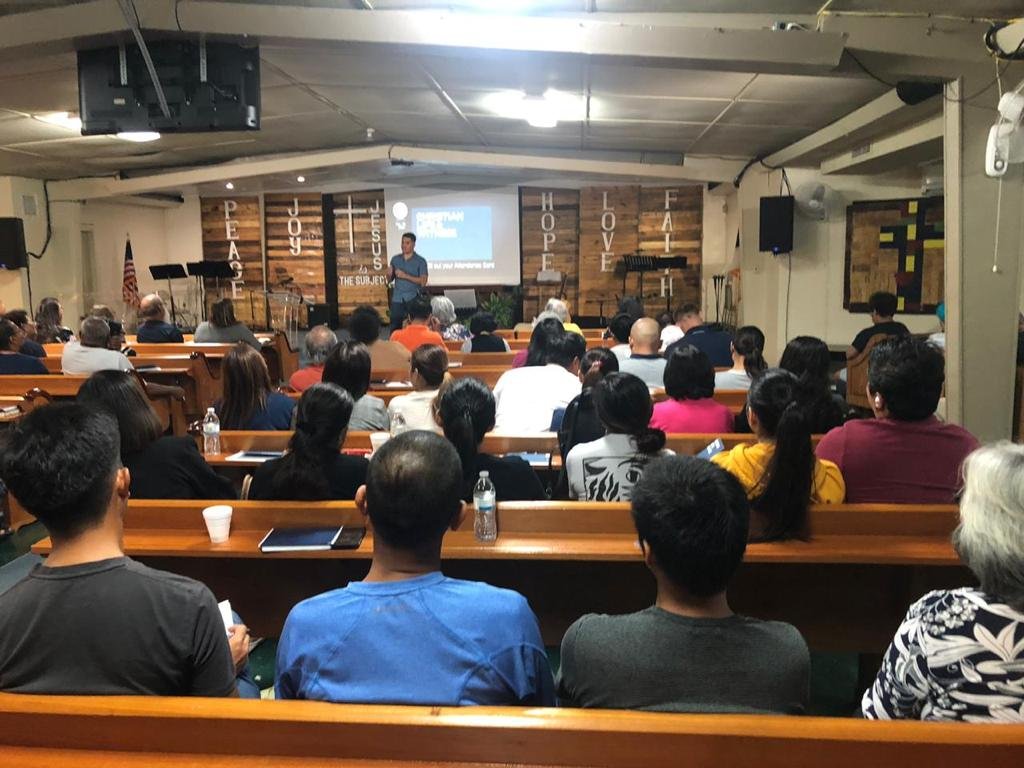
See.
A Vision for Planting a Healthy Church on the Island of Guam.
Why Church Planting?
When Jesus saw the crowds, he felt compassion for them, because they were distressed and dejected, like sheep without a shepherd.
Matthew 9:36
The whole island of Guam was impacted by the COVID-19 pandemic – some of my favorite local businesses shut down, family and friends have left for the States due to the scarcity of good-paying jobs, friends of mine have lost family members, and people are struggling with the grocery prices, gas, and the ever-rising house market.
Churches on island have also struggled. By God’s grace, some churches have grown, members are more engaged, and giving has increased. But this is the exception. While a handful of churches thrive, the majority of churches have struggled to pay bills, keep their doors open, or replace pastors who have left their congregations.
In the past 2 years alone, I can think of 8 evangelical churches that have lost their pastors–due to a change of calling, health concerns, and retirement. Some have also passed away due to complications with the virus. During this time, 5 different congregations have asked me to consider pastoring their local church. God did not open these particular doors (e.g., theological differences, not being able to financially support a pastor with a family, etc.)
A Vision for Planting More Healthy Churches
It is our desire to plant a healthy church on island that will–by God’s grace–raise other leaders to plant and revitalize other healthy churches on Guam, the Marianas, Micronesia, and to the Asian-Pacific Rim.
What kind of church will the Hennegans be planting? By God’s grace, we aim to plant a Word-based, Gospel-Centered, and Spirit-empowered church that produces pastors and ministry leaders that reach out to the community on the island of Guam and abroad. Along with this, we are helped by other pastors and missionaries who have thought deeply about what it means to plant healthy churches and other ministries. Over one hundred and fifty years ago, Anglican missionary strategist Henry Venn made a formula for assessing the health of churches. His three criteria for marks of a healthy church were:
-
First, I can count on my hand 3 churches that can support a pastor full-time. Second, due to the pandemic, many churches on the island of Guam are hurting financially. The number of members in the church has decreased and so has its giving.
During the last two years, 5 churches (or members of churches) have investigated (and/or pursued) me in becoming their lead pastor. None of these ministries could support their local pastor (the majority of pastors are bi-vocational and have to split their best energies between being a good employee and pastoring a church).
Although God does work through bi-vocational ministry, I believe God is calling me to seeking full-time support as a church planter. The duties of a local pastor are to feed, lead, and care for the flock of God. This (in itself) is a full-time responsibility. I believe that seeking full-time support will free me and my family to do gospel work in our local church and in our community better than I could working at two jobs. This will ultimately be better for the church and for my family.
-
I am also persuaded that a church should be self-governing. From Venn’s perspective, this meant that he wanted churches in Kenya “to feel like a Kenyan church and churches in Brazil to feel vibrantly Brazilian.”
My vision for Guam is that we plant a church that is cross-cultural, cross-generational, and multi-socioeconomic in its membership and in its leadership.
-
I desire that our church plant would be a community that is not merely making disciples but disciples that are disciple-makers. The Trellis and the Vine describes it this way:
This means that we must be willing to lose people from our own congregation if that is better for the growth of the gospel. We must be happy to send members off to other places so that the gospel may grow there as well. And be warned: this will happen if you take gospel growth and training seriously. If you pour your time into people and mentor people, and train them, the consequence will often be that some of your best people in whom you have invested countless hours will leave you. . . . They will join a church-planting team in another part of your city. . . a commitment to the growth of the gospel will mean that we train people towards maturity, not for the benefit of our own churches or fellowships but the for the benefit of Christ’s kingdom.

